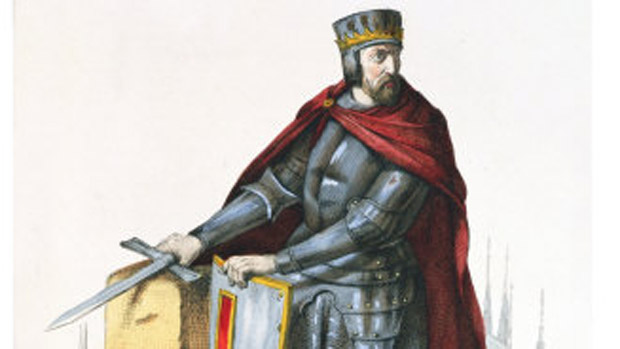The January Parliament: marking 750 years of British democracy
Often overlooked, the first meeting of an elected parliament in England was 750 years ago today

A free daily email with the biggest news stories of the day – and the best features from TheWeek.com
You are now subscribed
Your newsletter sign-up was successful
This year is the 800th anniversary of the Magna Carta, the treaty which limited the power of the monarchy and laid the foundation for British democracy. But today marks another, less well remembered anniversary: 750 years since the January Parliament.
What was the January Parliament?
On 20 January 1265, knights, burgesses and aldermen met in London for the first real parliament in British history. Of course, the representatives were 'elected' in a far less democratic way than they are now, but the meeting is still seen by academics as the birth of British parliaments.
The Week
Escape your echo chamber. Get the facts behind the news, plus analysis from multiple perspectives.

Sign up for The Week's Free Newsletters
From our morning news briefing to a weekly Good News Newsletter, get the best of The Week delivered directly to your inbox.
From our morning news briefing to a weekly Good News Newsletter, get the best of The Week delivered directly to your inbox.
Why isn't the January Parliament better known?
The BBC suggests the gathering has been eclipsed in history by the signing of the Magna Carta, fifty years previously. Magna Carta limited the power of the monarch and, after some teething troubles, changed history – but it did not institute anything resembling a parliament.
Who called the meeting?
The January Parliament was summoned by French-born noble Simon de Montfort", says the Daily Telegraph. He had beaten and taken prisoner both Henry III and his heir – later Edward I – at the Battle of Lewes the previous year, becoming de facto monarch, though ruling in Henry's name.
A free daily email with the biggest news stories of the day – and the best features from TheWeek.com
Why did Montfort institute a parliament?
Montfort's position was tenuous - he had risen to the top as one of a group of barons and could expect to be unseated at any moment. He wanted the backing of "as wide a section of society as possible", the BBC says. But his motive wasn't purely self-interest: as a Christian, Montfort was advised by the church he should work for the good of the poor.
Who were the first 'MPs'?
Montfort ordered each county of England to send two knights, says the Telegraph. Towns were asked to send two burgesses and two aldermen. The delegates were 'elected' locally - in some cases chosen by lot.
Was it really the first parliament?
There had been parliaments before – but in a more limited sense. They were "elite gatherings between the king and his chosen advisors", says the BBC, to which knights were occasionally invited – but only to discuss taxation. The January Parliament discussed wider affairs of state, was not called by the king, and included burgesses from the towns.
-
 The Olympic timekeepers keeping the Games on track
The Olympic timekeepers keeping the Games on trackUnder the Radar Swiss watchmaking giant Omega has been at the finish line of every Olympic Games for nearly 100 years
-
 Will increasing tensions with Iran boil over into war?
Will increasing tensions with Iran boil over into war?Today’s Big Question President Donald Trump has recently been threatening the country
-
 Corruption: The spy sheikh and the president
Corruption: The spy sheikh and the presidentFeature Trump is at the center of another scandal